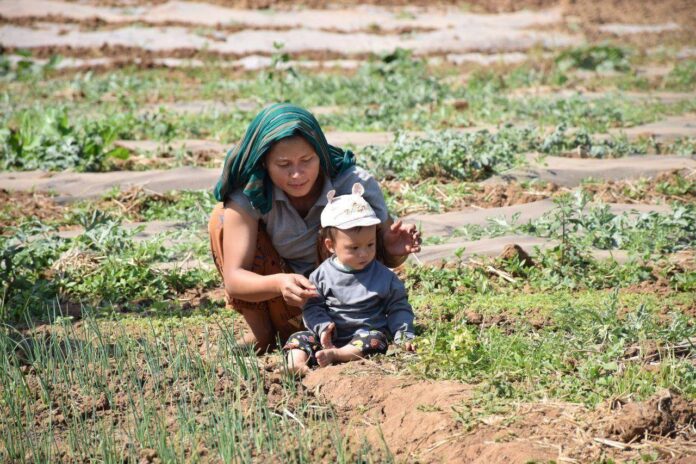By Kantarawaddy Times
Since the military coup in 2021, vaccination coverage for children under five in areas controlled by resistance forces in Karenni State has dropped to only 30%, according to reports. Ongoing conflicts in the region, coupled with the displacement of communities in Karenni State, have made data collection extremely challenging.
According to records from 2021, only 30% of children under the age of five were able to receive vaccinations. This was confirmed by Khun Philip, the head of the IEC Health Department, during an interview with Kantarawaddy Times.
“Based on the data collected in 2021, only about 30% of children under five have been vaccinated. The remaining 60-70% remain unvaccinated due to various challenges. Additionally, with the constant displacement of IDPs, collecting accurate population data has been extremely difficult,” stated Khun Philip.
Before the military takeover, health workers and midwives provided vaccinations to newborns and children under five at hospitals, health centers, and local clinic in villages. However, political instability, supply shortages, and ongoing conflict have significantly hindered vaccination efforts post-coup.
Children are supposed to receive 11 types of vaccines from birth to 18 months, at specific ages considered most effective. A mother of a one-year-old child explained that families in remote villages and IDP camps with limited access to healthcare must travel to western Dee Maw Hso Township, where healthcare services are available, to ensure their children receive vaccinations.
“In our village, we have to travel to Dee Maw Hso for vaccinations. The journey is long from our villages, taking about two days for a round trip. We have to inquire in advance about where vaccinations are available. Nevertheless, vaccines are not always readily available, so we get them whenever and wherever they are accessible,” she said.
Children who miss routine vaccinations are at risk of health complications, frequent illnesses, weakened immunity, and preventable diseases. This could lead to avoidable fatalities, Khun Philip added.
“If the population doesn’t have access to these vaccines, preventable diseases can no longer be prevented. For example, diseases like polio and measles, which commonly affect children, could spread in outbreaks, leading to higher mortality rates. Without vaccines, these issues are likely to become much more widespread,” he said.
Vaccines must be stored at specific temperatures and transported in insulated containers, which poses logistical challenges due to poor transportation infrastructure. Consequently, vaccination campaigns have been delayed, according to mothers in the area.
In addition to logistical barriers, some areas lack adequate health education and awareness about the importance of vaccination. The IEC admitted that it cannot provide full health coverage, with gaps in services particularly affecting displaced populations. These gaps have resulted in cases of child deaths due to delayed access to health services.
Although over 100 health centers and clinics have been opened in various towns and villages across Karenni State, the IEC is still striving to achieve comprehensive coverage, Khun Philip concluded.




